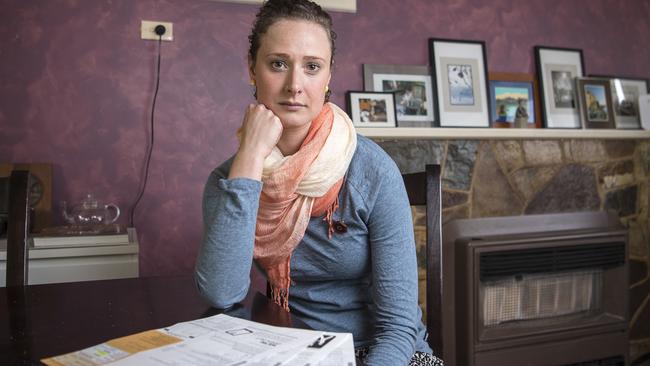Poor insulation, energy bills pushing tenants to put health at risk
TENANTS living in poorly-insulated homes are risking their health to try to manage the blowout in their power bills, a new report says.

VIC News
Don't miss out on the headlines from VIC News. Followed categories will be added to My News.
TENANTS in poorly insulated rental homes are risking their health to try to manage the blowout in their power bills, a new report says.
Some ration their heating in winter or hang “survival blankets” over windows on hot days, the research reveals.
A state government review of rental laws has been told that leased properties should have minimum energy and water efficiency standards.
These could cost landlords of the worst-performing rental homes up to an estimated $5500 over five years.
RELATED: MORE THAN 1000 HOUSEHOLDS A WEEK DISCONNECTED
ENERGY CRISIS: VICTORIANS TO BE PAID TO REDUCE USE

But they would not only tackle hardship for tenants, they would also cut climate pollution, Environment Victoria says.
EV’s Anne Martinelli said: “Cars are required to pass a roadworthy test. Why shouldn’t a house meet a basic ‘homeworthy’ test before it can be leased?”
Measures such as ceiling insulation, better lighting, draught seals, dual-flush toilets and modern heaters and hot water systems could save tenants up to $850 a year on electricity, gas and water bills, it says.
The proposed scheme could cost some property investors with worst-performing homes up to $5500 over five years, it estimates.
Environment Victoria’s Bringing Rental Homes Up to Scratch report argues that as most landlords are high-income earners, basic efficiency upgrades would not be “onerous”.
“It is not unreasonable to ask property owners to run their business in a manner that avoids endangering other people’s safety and wellbeing,” the report notes.
The plan has been submitted to the state government, which is reviewing rental laws.
Environment Victoria says phasing in minimum standards over several years would keep landlord costs affordable, while extra legal protections could guard against “excessive” rent rises and evictions.
Similar standards in the United Kingdom, Canada and New Zealand had not had a significant impact on housing supply or rent prices.
Ms Martinelli said renters in draughty, inefficient older homes had to spend more to keep warm in winter or cool in summer, or live in uncomfortable conditions.
“With more and more Victorians locked out of home ownership and renting long-term, the financial and health impacts of inefficient housing are being felt across a growing proportion of our community, particularly young families,” she said.
Long-term renter Natasha Collins, who has a medical condition linked to body temperature regulation problems, said poorly insulated homes felt colder inside than outside.
“This winter, I’ve had muscle spasms and shaking and pain,” Ms Collins, 33, said.
“At another property, it was so cold overnight I ended up in hospital with breathing problems.”


